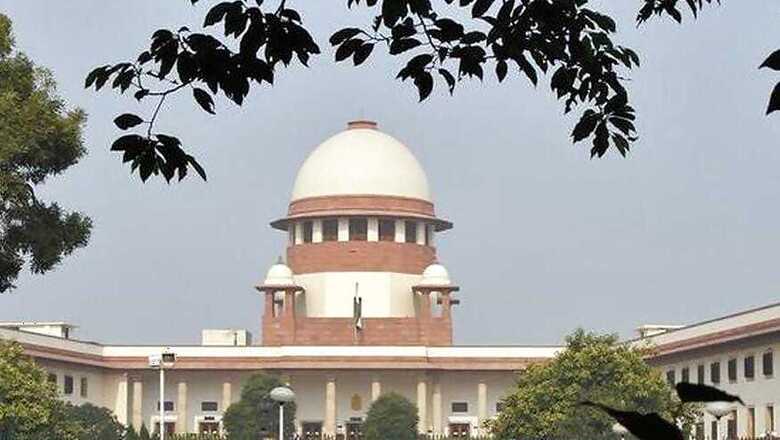
views
New Delhi: The Supreme Court on Friday decided to examine the Centre's decision to grant 10 percent reservation in jobs and education to poor candidates belonging to general category, but refused to order a stay on the implementation of the policy.
A bench comprising Chief Justice Ranjan Gogoi and Justice Sanjiv Khanna issued a notice to the central government on various petitions challenging the validity of the 103 Constitutional Amendment Act, which paved the way for grant of quota to poor belonging to general category class. Giving the government four weeks to respond, the CJI said the court "will examine the issue".
The apex court, however, also refused to pass orders to the effect that whatever appointments the government makes under the new reservation policy would be subject to the outcome of the case before it. Solicitor General Tushar Mehta, appearing for the Centre, said the pleas did not deserve a hearing and vehemently argued that there should not be any stay on the Centre's decision.
The pleas had sought the quashing of the amendment on the grounds that economic criterion cannot be the sole basis for reservation. The plea said it violates basic feature of the Constitution as reservation on economic grounds cannot be limited to the general categories and the 50 per cent ceiling limit cannot be breached.
The EWS quota act had sailed through both Houses of Parliament earlier this month and was given the President’s assent in three days. The move to introduce the reservation came just months ahead of the Lok Sabha polls and is seen as a game changer for the ruling BJP.
The BJP had faced the wrath of the upper castes, especially in Madhya Pradesh and Rajasthan, following its aggressive push to win over backward classes and Dalits, and the reservation is being seen as an attempt by the party to win over its core constituency of upper castes.
The central government has stated that beginning next month, all central government posts will be filled after factoring in the recently approved 10 per cent reservation.
It has also stated that the quota will be introduced for admissions to higher education institutions from the 2019 academic session and college authorities have been asked to increase infrastructure to meet the increased demand.
According to the government notification, persons who are not covered under the existing scheme of reservations for Scheduled Castes, Scheduled Tribes and socially and educationally backward classes and whose family has gross annual income below Rs 8 lakh are to be identified as EWSs for the benefit of reservation.
Also, persons whose family owns or possesses five acres of agricultural land and above, residential flat of 1,000 sq ft and above; residential plot of 100 sq yards and above in notified municipalities and residential plot of 200 sq yards and above in areas other than the notified municipalities shall be excluded from being identified as EWSs, irrespective of the family income.
Lok Sabha and Rajya Sabha cleared the Bill on January 8 and 9 respectively, and has been signed by President Ram Nath Kovind.














Comments
0 comment